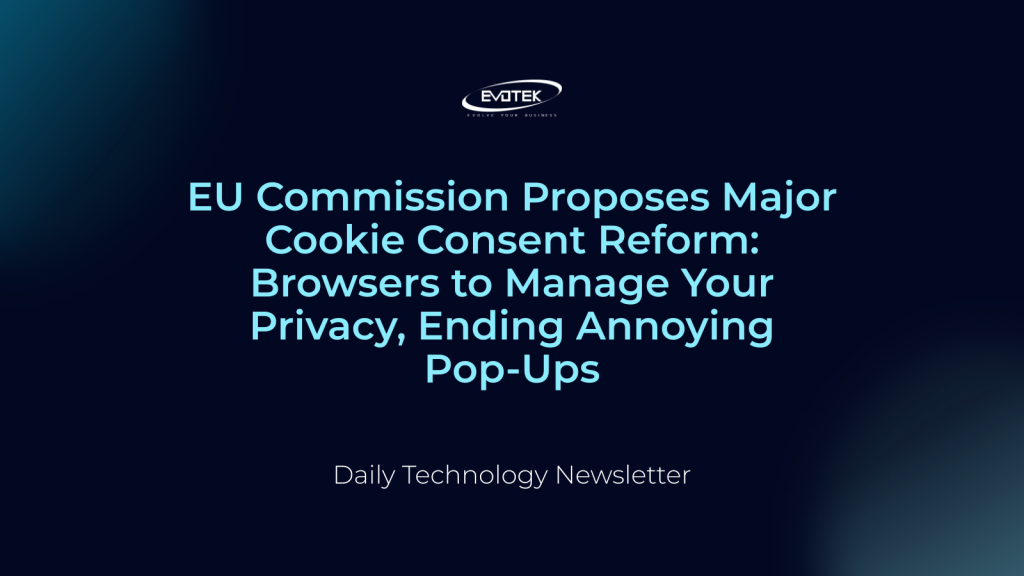For years, navigating the web in Europe has been synonymous with an endless barrage of cookie consent pop-ups. Since their implementation in 2018, these banners, often perceived as an inconvenience rather than a robust tool for privacy, have become an unavoidable part of the online experience. However, a significant shift is on the horizon, as the European Commission has unveiled ambitious proposals aimed at transforming how digital privacy preferences are managed, potentially bringing an end to the pervasive “cookie nightmare.”
Revolutionizing User Consent: Browser-Level Preferences
The cornerstone of the European Commission’s new initiative is a fundamental change to where and how users manage their cookie preferences. Rather than confronting individual pop-ups on every website visited within the EU, the proposed regulations would empower users to establish their privacy choices directly within their web browsers. The Commission explicitly states, “People can set their privacy preferences centrally — for example via the browser — and websites must respect them.” This innovative approach promises to “drastically simplify users’ online experience,” offering a unified and less intrusive method for managing personal data and enhancing overall digital privacy.
A Phased Approach to Enhanced Digital Privacy
This pivotal reform is integral to the EU’s broader “Digital Package,” a comprehensive set of proposals designed to streamline Europe’s digital regulatory landscape. The transition will occur in stages. Initially, cookie prompts will evolve into simplified, single-click “yes” or “no” options, providing immediate relief from complex, multi-layered banners. Following this, the focus will shift towards implementing the “technological solutions” that enable full browser-level preference management, making the process seamless for users.
Additionally, the new rules will mandate that websites honor user cookie choices for a minimum of six months, preventing repetitive requests. To further reduce the frequency of pop-ups, the EU also intends to exempt “harmless uses” of cookies, such as basic website visitor counting, from requiring consent banners. This aims to ensure prompts are reserved for data collection activities that genuinely impact user privacy and require explicit consent.
Beyond Annoyance: Ensuring Genuine User Choice
The current system has been widely criticized for its ineffectiveness and its failure to truly empower users. Faced with incessant pop-ups, many users admit to clicking “accept” or “reject” without genuinely understanding or considering the implications, simply to gain immediate access to content. The European Commission acknowledges this flaw, stating, “This is not a real choice made by citizens to protect their phones or computers and to choose what happens to their data.”
The new proposals seek to rectify this by “modernizing the ‘cookies rules’.” The objective is to uphold the same robust protections for user devices while empowering citizens with true control over the cookies placed on their connected devices, such as smartphones and computers, and ultimately, what happens to their personal data. This move is designed to foster a more transparent and user-centric online environment.
The Road Ahead: Approvals and Implementation
While these proposals represent a significant leap forward in improving digital privacy and user experience across Europe, the journey to full implementation is still underway. The European Commission’s recommendations will now proceed to the European Parliament for deliberation and potential amendments. Following parliamentary review, the proposals will require approval from the EU’s 27 member states. This multi-stage legislative process is expected to take some time. Nevertheless, these proposed changes mark a crucial step towards resolving Europe’s long-standing cookie consent dilemma, promising a more streamlined and privacy-centric online experience for millions of internet users.

 日本語
日本語 한국어
한국어 Tiếng Việt
Tiếng Việt 简体中文
简体中文